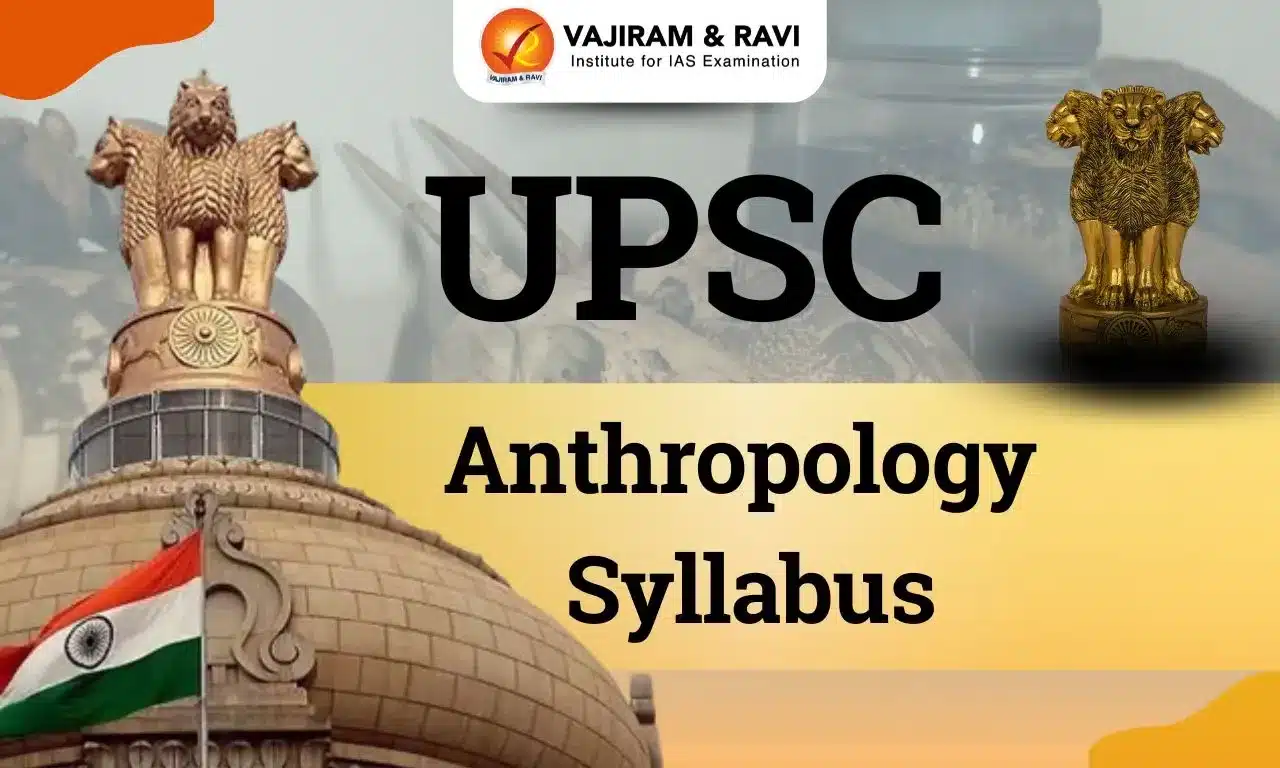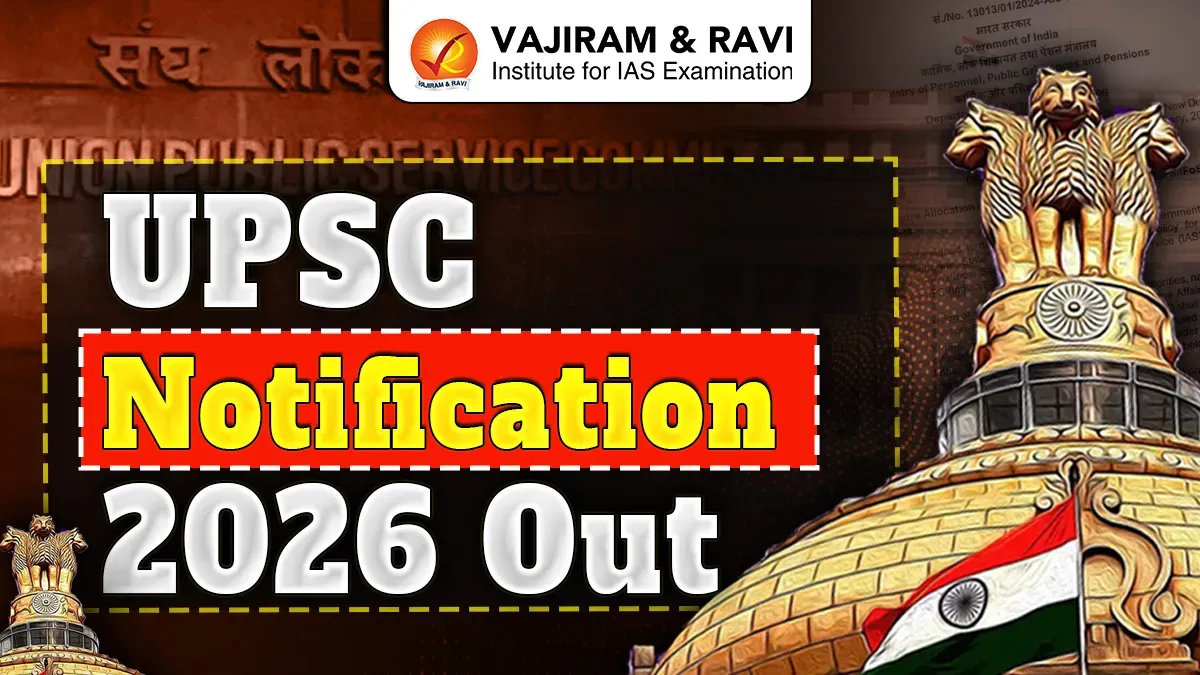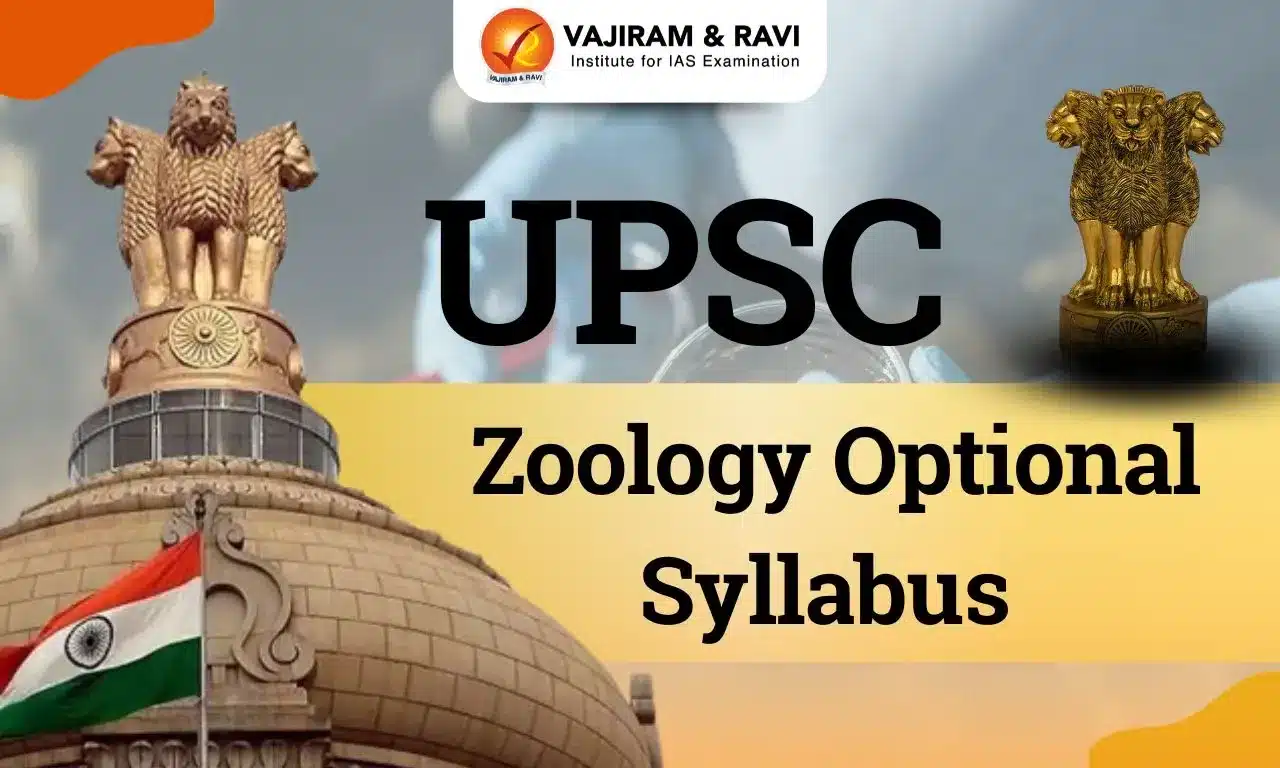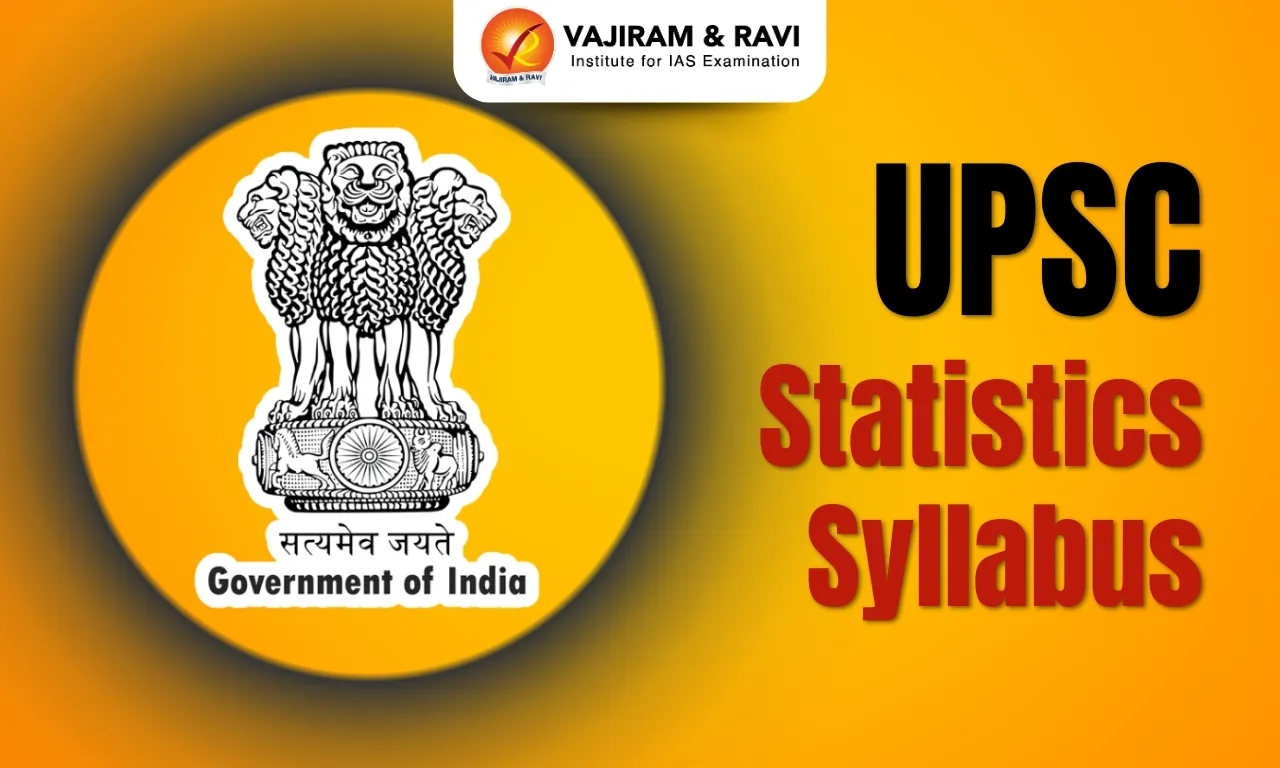The UPSC Anthropology optional syllabus entails two papers in which Paper I deals comprehensively with the subject matter and its methodologies for examining a range of topics, such as social structure, religion, economic systems, etc. The Anthropology syllabus for UPSC Mains Optional Paper II, on the other hand, emphasises the various aspects of Indian Society and Tribes, including the diversity of the tribes and the challenges they are facing as a result of contemporary forces of change. Additionally, it contains government initiatives for their development, which are highly dynamic and comprise recent developments.
Anthropology is one of the most popular optional subjects in the UPSC Civil Services Exam. It is a comprehensive science, touching on several aspects of biology and primatology, including the evolution of humans, sociology, and archaeology. Because it introduces us to the origin and development of human societies and cultures, it needs a multidisciplinary approach to deepen our awareness of society.
What is the Anthropology Syllabus for UPSC?
Anthropology is one of the popular optional subjects opted for by UPSC aspirants in the Mains exam. It carries 500 marks overall, with two papers of 250 marks each.
- Anthropology is the scientific study of simple society and human behaviour, which makes it the most humane of all sciences and an interesting subject to be opted as an optional subject in the Civil Services Main Exam.
- This discipline is highly logical, analytical and yet easy to understand, and as it is less time-consuming, it is beneficial to the aspirants.
- As it is the interface of Humanities and Science, Anthropology is considered a good option for candidates with a science or engineering background. Also, it is a very high-scoring subject.
- The foundational chapters of the Anthropology syllabus are advantageous for the General studies papers due to the overlap of some topics.
- Most importantly, it aids in the development of a multidisciplinary perspective, which is also helpful for the Ethics and Essay papers.
- Relatively shorter than other humanities subjects, the UPSC Anthropology syllabus has a logical flow and systematic approach.
- A comprehensive study in over 3-4 months would be enough to prepare this optional subject. Reference textbooks by subject experts and previous years' papers are highly recommended.
Overall, Anthropology provides a great option for those with an analytical bent of mind and an interest in Human sciences with the application of natural science.
UPSC Anthropology Syllabus 2026 for Paper 1
Here is an overview of the Anthropology optional syllabus for UPSC Paper-1:
1.1 Meaning, Scope and development of Anthropology.
1.2 Relationships with other disciplines: Social Sciences, behavioural Sciences, Life Sciences, Medical Sciences, Earth Sciences and Humanities.
1.3 Main branches of Anthropology, their scope and relevance:
(a) Social-cultural Anthropology.
(b) Biological Anthropology.
(c) Archaeological Anthropology.
(d) Linguistic Anthropology.
1.4 Human Evolution and emergence of Man:
(a) Biological and Cultural factors in human evolution.
(b) Theories of Organic Evolution (Pre-Darwinian, Darwinian and Post-Darwinian).
(c) Synthetic theory of evolution; Brief outline of terms and concepts of evolutionary biology (Doll’s rule, Cope’s rule, Gause’s rule, parallelism, convergence, adaptive radiation, and mosaic evolution).
1.5 Characteristics of Primates; Evolutionary Trend and Primate Taxonomy; Primate Adaptations; (Arboreal and Terrestrial) Primate Taxonomy; Primate Behaviour; Tertiary and Quaternary fossil primates; Living Major Primates; Comparative Anatomy of Man and Apes; Skeletal changes due to erect posture and its implications.
1.6 Phylogenetic status, characteristics and geographical distribution of the following:
(a) Plio-pleistocene hominids in South and East Africa—Australopithecines.
(b) Homo erectus: Africa (Paranthropus), Europe (Homo erectus (heidelbergensis), Asia (Homo erectus javanicus, Homo erectus pekinensis.
(c) Neanderthal man—La-chapelle-aux-saints (Classical type), Mt. Carmel (Progressive type).
(d) Rhodesian man.
(e) Homo sapiens—Cromagnon, Grimaldi and Chancelade.
1.7 The biological basis of Life: The Cell, DNA structure and replication, Protein Synthesis, Gene, Mutation, Chromosomes, and Cell Division.
1.8 (a) Principles of Prehistoric Archaeology. Chronology: Relative and Absolute Dating methods.
(b) Cultural Evolution—Broad Outlines of Prehistoric cultures:
(i) Paleolithic
(ii) Mesolithic
(iii) Neolithic
(iv) Chalcolithic
(v) Copper-Bronze Age
(vi) Iron Age
2.1 The Nature of Culture: The concept and Characteristics of culture and civilization; Ethnocentrism vis-a-vis cultural Relativism.
2.2 The Nature of Society: Concept of Society; Society and Culture; Social Institution; Social groups; and Social stratification.
2.3 Marriage: Definition and universality; Laws of marriage (endogamy, exogamy, hypergamy, hypogamy, incest taboo); Type of marriage (monogamy, polygamy, polyandry, group marriage). Functions of marriage; Marriage regulations (preferential, prescriptive and proscriptive); Marriage payments (bride wealth and dowry).
2.4 Family: Definition and universality; Family, household and domestic groups; functions of family; Types of family (from the perspectives of structure, blood relation, marriage, residence and succession); Impact of urbanization, industrialization and feminist movements on family.
2.5 Kinship: Consanguinity and Affinity; Principles and types of descent (Unilineal, Double, Bilateral Ambilineal); Forms of descent groups (lineage, clan, phratry, moiety and kindred); Kinship terminology (descriptive and classificatory); Descent, Filiation and Complimentary Filiation;Descent and Alliance.
- Economic Organization: Meaning, scope and relevance of economic anthropology; Formalist and Substantivist debate; Principles governing production, distribution and exchange (reciprocity, redistribution and market), in communities, subsisting on hunting and gathering, fishing, swiddening, pastoralism, horticulture, and agriculture; globalization and indigenous economic systems.
- Political Organization and Social Control: Band, tribe, chiefdom, kingdom and state; concepts of power, authority and legitimacy; social control, law and justice in simple Societies.
- Religion: Anthropological approaches to the study of religion (evolutionary, psychological and functional); monotheism and polytheism; sacred and profane; myths and rituals; forms of religion in tribal and peasant Societies (animism, animatism, fetishism, naturism and totemism); religion, magic and science distinguished; magico-religious functionaries (priest, shaman, medicine man, sorcerer and witch).
- Anthropological theories:
(a) Classical evolutionism (Tylor, Morgan and Frazer)
(b) Historical particularism (Boas) Diffusionism (British, German and American)
(c) Functionalism (Malinowski); Structural— Functionalism (Radcliffe-Brown)
(d) Structuralism (Levi-Strauss and E. Leach)
(e) Culture and personality (Benedict, Mead, Linton, Kardiner and Cora-du Bois)
(f) Neo—evolutionism (Childe, White, Steward, Sahlins and Service)
(g) Cultural materialism (Harris)
(h) Symbolic and interpretive theories (Turner, Schneider and Geertz)
(i) Cognitive theories (Tyler, Conklin)
(j) Postmodernism in anthropology.
7. Culture, Language and Communication: Nature, origin and characteristics of language; verbal and non-verbal communication; social context of language use.
8. Research methods in Anthropology
(a) Fieldwork tradition in anthropology
(b) Distinction between technique, method and methodology
(c) Tools of data collection: observation, interview, schedules, questionnaire, case study, genealogy, life-history, oral history, secondary sources of information, participatory methods.
(d) Analysis, interpretation and presentation of data.
9.1 Human Genetics : Methods and Application : Methods for study of genetic principles in man-family study (pedigree analysis, twin study, foster child, co-twin method, cytogenetic method, chromosome and karyo-type analysis), biochemical methods, immunological methods, D.N.A. technology and recombinant technologies.
9.2 Mendelian genetics in man-family study, single factor, multifactor, lethal, sub-lethal and polygenic inheritance in man.
9.3 Concept of genetic polymorphism and selection, Mendelian population, Hardy-Weinberg law; causes and changes which bring down frequency-mutation, isolation, migration, selection, inbreeding and genetic drift. Consanguineous and non-consanguineous mating, genetic load, genetic effect of consanguineous and cousin marriages.
9.4 Chromosomes and chromosomal aberrations in man, methodology.
(a) Numerical and structural aberrations (disorders).
(b) Sex chromosomal aberration- Klinefelter (XXY), Turner (XO), Super female (XXX), intersex and other syndromic disorders.
(c) Autosomal aberrations- Down syndrome, Patau, Edward and Cri-du-chat syndromes.
(d) Genetic imprints in human disease, genetic screening, genetic counseling, human DNA profiling, gene mapping and genome study.
9.5 Race and racism, biological basis of morphological variation of non-metric and characters. Racial criteria, racial traits in relation to heredity and environment; biological basis of racial classification, racial differentiation and race crossing in man.
9.6 Age, sex and population variation as genetic markers : ABO, Rh blood groups, HLA Hp, transferring, Gm, blood enzymes. Physiological characteristics-Hb level, body fat, pulse rate, respiratory functions and sensory perceptions in different cultural and socio-economic groups.
9.7 Concepts and methods of Ecological Anthropology : Bio-cultural Adaptations—Genetic and Non-genetic factors. Man’s physiological responses to environmental stresses: hot desert, cold, high altitude climate.
9.8 Epidemiological Anthropology : Health and disease. Infectious and non-infectious diseases, Nutritional deficiency related diseases.
- Concept of human growth and Development: Stages of growth—prenatal, natal, infant, childhood, adolescence, maturity, senescence.
—Factors affecting growth and development genetic, environmental, biochemical, nutritional, cultural and socio-economic.
—Ageing and senescence. Theories and observations
—Biological and chronological longevity. Human physique and somatotypes. Methodologies for growth studies.
11.1 Relevance of menarche, menopause and other bioevents to fertility. Fertility patterns and differentials.
11.2 Demographic theories-biological, social and cultural.
11.3 Biological and socio-ecological factors influencing fecundity, fertility, natality and mortality.
12. Applications of Anthropology: Anthropology of sports, Nutritional anthropology, Anthropology in designing of defence and other equipments, Forensic Anthropology, Methods and principles of personal identification and reconstruction, Applied human genetics—Paternity diagnosis, genetic counseling and eugenics, DNA technology in diseases and medicine, serogenetics and cytogenetics in reproductive biology.
Anthropology Optional Syllabus - Paper 2
Here is an overview of the Anthropology optional syllabus for UPSC Paper-2:
1.1 Evolution of Indian Culture and Civilization— Prehistoric (Palaeolithic, Mesolithic, Neolithic and Neolithic-Chalcolithic), Protohistoric (Indus Civilization). Pre-Harappan, Harappan and post- Harappan cultures. Contributions of the tribal cultures to Indian civilization.
1.2 Palaeo—Anthropological evidence from India with special reference to Siwaliks and Narmada basin (Ramapithecus, Sivapithecus and Narmada Man).
1.3. Ethno-archaeology in India: The concept of ethno-archaeology; Survivals and Parallels among the hunting, foraging, fishing, pastoral and peasant communities including arts and crafts producing communities.
2. Demographic profile of India—Ethnic and linguistic elements in the Indian population and their distribution. Indian population—factors influencing its structure and growth.
3.1 The structure and nature of the traditional Indian social system—Varnashrama, Purushartha, Karma, Rina and Rebirth.
3.2 Caste system in India— Structure and characteristics Varna and caste, Theories of origin of caste system, Dominant caste, Caste mobility, Future of caste system, Jajmani system. Tribe-caste continuum.
3.3 Sacred Complex and Nature-Man-Spirit Complex.
3.4. Impact of Buddhism, Jainism, Islam and Christianity of Indian society.
- Emergence, growth and development in India— Contributions of the 18th, 19th and early 20th Century scholar-administrators. Contributions of Indian anthropologists to tribal and caste studies.
5.1 Indian Village—Significance of village study in India; Indian village as a social system; Traditional and changing patterns of settlement and inter-caste relations; Agrarian relations in Indian villages; Impact of globalization on Indian villages.
5.2 Linguistic and religious minorities and their social, political and economic status.
5.3 Indigenous and exogenous processes of socio-cultural change in Indian society: Sanskritization, Westernization, Modernization; Inter-play of little and great traditions; Panchayati Raj and social change; Media and Social change.
6.1 Tribal situation in India—Bio-genetic variability, linguistic and socio-economic characteristics of the tribal populations and their distribution.
6.2 Problems of the tribal Communities—Land alienation, poverty, indebtedness, low literacy, poor educational facilities, unemployment, under-employment, health and nutrition.
6.3 Developmental projects and their impact on tribal displacement and problems of rehabilitation. Development of forest policy and tribals. Impact of urbanisation and industrialisation on tribal populations.
7.1 Problems of exploitation and deprivation of Scheduled Castes, Scheduled Tribes and Other Backward Classes. Constitutional safeguards for Scheduled Tribes and Scheduled Castes.
7.2 Social change and contemporary tribal societies: Impact of modern democratic institutions, development programmes and welfare measures on tribals and weaker sections.
7.3 The concept of ethnicity; Ethnic conflicts and political developments; Unrest among tribal communities; Regionalism and demand for autonomy; Pseudo-tribalism. Social change among the tribes during colonial and post-Independent India.
8.1 Impact of Hinduism, Buddhism, Christianity, Islam and other religions on tribal societies.
8.2 Tribe and nation state—a comparative study of tribal communities in India and other countries.
9.1 History of administration of tribal areas, tribal policies, plans, programmes of tribal development and their implementation. The concept of PTGs (Primitive Tribal Groups), their distribution, special programmes for their development. Role of N.G.O.s in tribal development.
9.2 Role of anthropology in tribal and rural development.
9.3 Contributions of anthropology to the understanding of regionalism, communalism and ethnic and political movements.
UPSC Anthropology Optional Syllabus PDF
UPSC aspirants should keep a copy of the Anthropology syllabus handy during preparation to ensure all topics are covered. The PDF below outlines the syllabus in detail, including sub-topics, to help candidates plan their study effectively. Use it as a checklist to organize and focus your preparation.
Download: UPSC Anthropology Optional Syllabus PDF
How to Prepare UPSC Anthropology Optional Syllabus?
The questions from the Anthropology optional syllabus demand conceptual clarity in answers, which can be enriched by diagrams and flowcharts. Using the case studies (tribal and cultural groups) is a must in this subject due to its subject matter. Strong focus should be on fundamentals, practice questions, and relating concepts to real-world examples. Here are some tips to effectively prepare the UPSC Anthropology optional syllabus:
- Understand the Syllabus: Start with an overview of the syllabus and previous years' question papers to identify important topics and the exam pattern.
- Focus on the Basics: Start with the foundational topics, such as human evolution, sociocultural anthropology, and anthropological theories. Build a strong base before moving to advanced concepts.
- Chapters of NCERT Biology and Sociology are foundational in nature, so go through these chapters.
- Select the Right Study Material: Refer to standard textbooks like Physical Anthropology by P Nath and Indian Anthropology by Nadeem Hasnain to build your fundamentals. Make chapter-wise notes. For current developments, read Anthropology newsletters, journals and articles in science magazines regularly.
- Solve Previous Years' Papers: Solve the past 10-15 years of UPSC Anthropology papers thoroughly. Observe the topic weightage and nature of the questions asked.
- Practice Diagrams and Case Studies: Practice drawing neat diagrams, sections and labelling. UPSC often asks candidates to illustrate concepts through sketches. Analyse case studies to understand real-world applications.
- Case studies can be prepared using various newspapers and magazines such as the Ministry of Tribal Affairs website, The Hindu, Economic and Political Weekly, Yojana, etc.
With a strategic and focused approach, you can master this highly rewarding optional subject.
Important Topics in UPSC Anthropology Syllabus
Here is a list of important topics in the UPSC Anthropology syllabus for Paper 1 and Paper 2 from an exam point of view:
Paper 1
- Meaning, Scope, and Development of Anthropology
- Relationship with Other Disciplines: History, Economics, Sociology, Psychology, Political Science, Life Science, Medical Science.
- Main Branches of Anthropology: Social-Cultural Anthropology, Biological Anthropology, Archaeological Anthropology, Linguistic Anthropology.
- Human Evolution and the Emergence of Man: Theories of Organic Evolution, Characteristics of Primates, Phylogenetic Status of Hominids, Biological Basis of Life, Principles of Prehistoric Archaeology, and Cultural Evolution.
- The Nature of Culture and Society: Concepts of Culture and Civilization, Ethnocentrism vs. Cultural Relativism, Social Institutions, Social Groups, Social Stratification.
- Marriage and Family: Definitions, Laws of Marriage, Types of Marriage, Functions of Marriage, Marriage Regulations, and Impact of Urbanization and Industrialization.
- Kinship: Principles and Types of Descent, Kinship Terminology, Descent and Alliance.
- Economic Organization: Formalist and Substantivist Debate, Principles Governing Production, Distribution, and Exchange in Different Societies.
- Political Organization and Social Control: Concepts of Power, Authority, Legitimacy, and Social Control in Simple Societies.
- Religion: Anthropological Approaches to the Study of Religion, Forms of Religion in Tribal and Peasant Societies, Magico-Religious Functionaries.
- Anthropological Theories: Various Anthropological Theories, including Classical Evolutionism, Functionalism, Structuralism, and more.
- Culture, Language, and Communication: Nature, Origin, and Characteristics of Language, Verbal and Non-verbal Communication.
- Research Methods in Anthropology: Fieldwork Tradition, Tools of Data Collection, and Analysis of Data.
- Human Genetics: Genetic Principles in Man, Mendelian Genetics, Genetic Polymorphism, Chromosomal Aberrations, Race and Racism, Population Genetics, and more.
- Ecological Anthropology: Bio-Cultural Adaptations, Man's Physiological Responses to Environmental Stresses, Epidemiological Anthropology, Health, and Disease.
Paper 2
- Evolution of Indian Culture and Civilization: Prehistoric, Protohistoric (Indus Civilization), and Contributions of Tribal Cultures to Indian Civilization.
- Palaeo Anthropological Evidences from India: Special Reference to Siwaliks and Narmada Basin.
- Ethno-Archaeology in India: Survivals and Parallels among Different Communities.
- Demographic Profile of India: Ethnic and Linguistic Elements in the Indian Population.
- The Structure and Nature of the Traditional Indian Social System: Caste System, Sacred Complex, and Impact of Different Religions.
- Emergence and Growth of Anthropology in India: Contributions of Scholar-Administrators and Indian Anthropologists to Tribal and Caste Studies.
- Indian Village: Significance, Patterns of Settlement, and Impact of Globalization.
- Linguistic and Religious Minorities: Their Status in Indian Society.
- Indigenous and Exogenous Processes of Socio-Cultural Change: Sanskritization, Westernization, and Modernization.
- Tribal Situation in India: Characteristics, Problems, and Impact of Developmental Projects.
- Problems of Exploitation and Deprivation: Scheduled Castes, Scheduled Tribes, and Other Backward Classes.
- Social Change and Contemporary Tribal Societies: Impact of Democratic Institutions, Development Programs, and Ethnic Conflicts.
- Impact of Religion on Tribal Societies: Comparative Study of Tribal Communities in India and Other Countries.
- Administration of Tribal Areas: Policies, Programs, and Role of NGOs.
- Role of Anthropology in Tribal and Rural Development: Contributions to Understanding Regionalism, Communalism, Ethnic and Political Movements.
Booklist for Anthropology Optional for UPSC
The suggested books below cover the UPSC Anthropology syllabus, but it is not necessary to read each book comprehensively. Focus on reading the specific chapters and topics in each book that are relevant to the UPSC exam. Be strategic in selecting which portions to study rather than trying to get through every page of these reference books.
| Paper | Books |
| Basics | Selected chapters of NCERT Sociology and Biology - XI and XII |
| Paper-1 |
- Physical Anthropology by P Nath - Anthropology Simplified by Vivek Bhasme - Anthropology by Ember and Ember |
| Paper-2 |
- Indian Anthropology by Nadeem Hasnain - Tribal India by Nadeem Hasnain - Anthropology Simplified by Vivek Bhasme - The Tribal Culture of India by LP Vidyarthi - Xaxa Report - Yojana articles on Tribal and Marginalized Communities |
The key is to combine selective reading with solving previous years' question papers to identify and prioritise the most important areas of the UPSC Anthropology syllabus to maximise your preparation efficiency.
| Other Related UPSC Optional Syllabus | ||
|---|---|---|
|
UPSC Animal Husbandry & Veterinary Science Optional Syllabus |
|
|
Last updated on February, 2026
→ UPSC Notification 2026 is now out on the official website at upsconline.nic.in.
→ UPSC IFoS Notification 2026 is now out on the official website at upsconline.nic.in.
→ UPSC Calendar 2026 has been released.
→ Check out the latest UPSC Syllabus 2026 here.
→ Join Vajiram & Ravi’s Interview Guidance Programme for expert help to crack your final UPSC stage.
→ UPSC Mains Result 2025 is now out.
→ UPSC Prelims 2026 will be conducted on 24th May, 2026 & UPSC Mains 2026 will be conducted on 21st August 2026.
→ The UPSC Selection Process is of 3 stages-Prelims, Mains and Interview.
→ Prepare effectively with Vajiram & Ravi’s UPSC Prelims Test Series 2026 featuring full-length mock tests, detailed solutions, and performance analysis.
→ Enroll in Vajiram & Ravi’s UPSC Mains Test Series 2026 for structured answer writing practice, expert evaluation, and exam-oriented feedback.
→ Join Vajiram & Ravi’s Best UPSC Mentorship Program for personalized guidance, strategy planning, and one-to-one support from experienced mentors.
→ UPSC Result 2024 is released with latest UPSC Marksheet 2024. Check Now!
→ UPSC Toppers List 2024 is released now. Shakti Dubey is UPSC AIR 1 2024 Topper.
→ Also check Best UPSC Coaching in India
Anthropology Optional Syllabus FAQs
Q1. What is anthropology optional for UPSC 2026?+
Q2. Will optional be removed from UPSC 2026?+
Q3. Will there be UPSC exam in 2026?+
Q4. What is the syllabus for anthropology for UPSC?+
Q5. Is anthropology tough optional?+
















